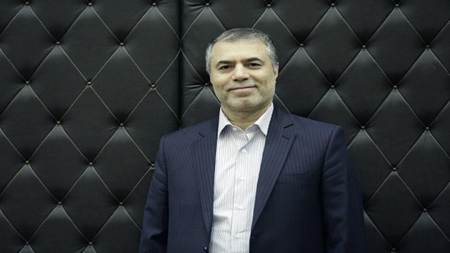Assembly of Knowledge-based Forces for Solving the Problems of Khuzestan Province
Collaboration of the government and academic organizations
Collaboration of the government and academic organizations

Karami stated: “no wretchedness made me miserable but the misery of others”. Exactly on the first days of the spring and when everyone is getting ready for Nowruz, our compatriots from Khuzestan are suffering from the issue of dunes and bad weather. Sand comes down from the sky instead of rain, disrupting the normal routine of daily life of those people. Furthermore, it causes respiratory problems for the citizens of this area as well. It is not possible to breath in such conditions. However, people from Khuzestan are tolerant and patient. They have shown this before during the Islamic revolution and eight years of war with Iraq. Nevertheless, our government has failed to recognize and appreciate their tolerance and good behavior. While the majority of our capital comes from this region of Iran, there are many problems in this area, which have not been solved yet. People from Khuzestan are suffering for many years and have not complained that much due to their loyalty to the revolution and state. This loyalty and patience is so valuable that our Supreme Leader has also expressed his concerns about this issue, clearly stating: “if a person feels responsible for other people, he cannot neglect the problems of Khuzestan so easily”. Even our Supreme Leader has explicitly criticized those officials that blame our ancestors for this situation instead of looking for a solution. However, dunes in this region cannot be easily and quickly resolved and eliminated. Our esteemed president and government cabinet have performed any act possible to eliminate this problem, a part of which is related to outside of Iran’s borders and requires international commitment and association of other countries. If we want to get rid of this issue as soon as possible, we have no other choice but to involve knowledge-based scientists. Today, science and technology have greatly progressed and the costs of dealing with catastrophes are extremely reduced. If this was 30 years ago and a manager wanted to inform the citizens about the situation and provide a solution for them, he would have to pay a lot more, involve other organizations and spend more time. Today, anyone that want to manage a disaster has many remarkable tools, which did not exist 30 years ago. In addition to the cyberspace, there has been extreme advances in as well. Especially, Iranians have been able to make great progress in some fields of knowledge. In this regard, Iran has been able to make advances in nano and bio technologies, something that the neighboring countries are envious of. The mentioned fields of science could be used with low costs to provide short-, mid and long-term solutions to deal with dunes. Scientists have discovered many facts in the environment, leading to less use of the desertification method, in which tart is sprayed on sands and dunes. Any technique that leads to the destruction of the environment and might endanger the life of animals is despicable and should not be applied. On the other hand, the majority of scientists believe that we should adapt ourselves to the environment and minimize the losses of compliance with natural geography. Meanwhile, eco-friendly methods can be used to avoid two-way destruction. Using nanotechnology, we can build houses that are safe from dunes. In addition, cultivating plants can be used to refine the air and increase oxygen. Right now, we might not be able to solve the problem of dunes right away and clear the air of Khuzestan or prevent residential electricity disconnection in humid weather by nano covers, but we can minimize the amount of destructions caused by these dunes through reliance on knowledge-based studies and achievements. When they say we have to turn threats into opportunities, it is not just about political or martial threats but can be applied for natural and social threats as well. This natural disaster can be also regarded as an economic-scientific opportunity. By forming an assembly of all knowledge-based forces and new technology facilities, we might be able to eliminate the dunes in Khuzestan and other regions with similar problems, bringing a clean and blue sky to them once again. We just have to make time for and believe in knowledge-based companies and allow them to represent their products and services related to this condition. Currently, some foreign companies have been able to produce a device that takes 30 liters of drinking water from the air and could be built in a house. This is the only solution for this problem and has previously examined in other countries. It seems that huge projects in this regard are over and we need to bring the private sector to the matter so that knowledge-based economy can be improved. For example, water and air purification devices can be cheaply produced in Iran. Many other solutions are currently provided by our young scientists and technologists. Right now, the most important issue is the cooperation of government organizations as the manager of crisis with academic institutes, especially knowledge-based companies, so that the damages caused by disasters are minimized.
Parviz Karami
Advisor to the vice president for science and technology affairs




comment